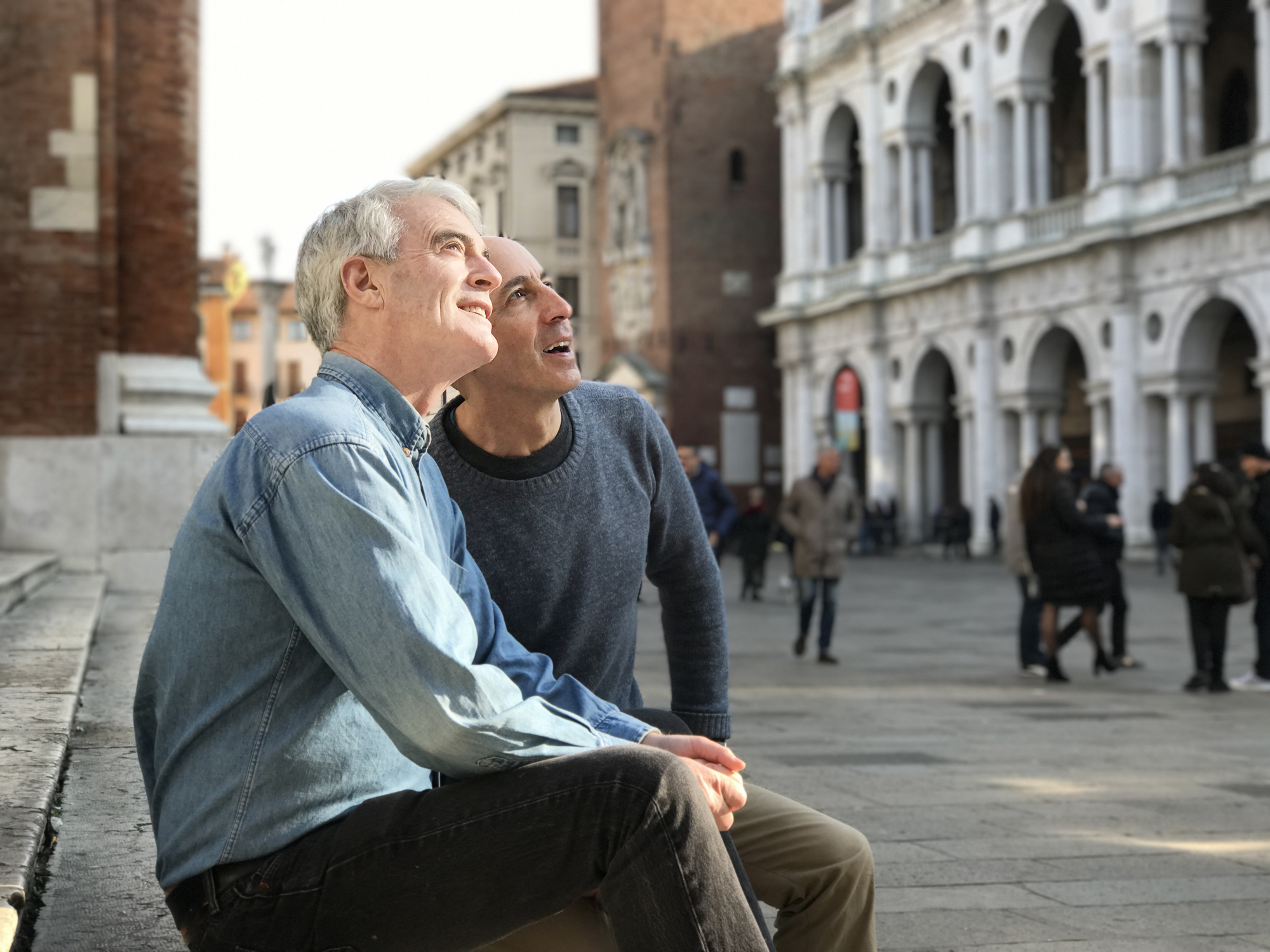Retire to the Simpler Life in a Small Town
Many retirees are searching for the close connections of Mayberry's small-town idyll.
By Elaine S. Povich
Mary and James Carlsen loved the Seattle downtown scene for the 28 years they lived in the city. Mary, a psychologist in private practice and an author, and James, a music professor at the University of Washington, were regular art-museum patrons and theatergoers, and they reveled in living just seven minutes from the bustling city center.
But 12 years ago, Mary, now 78, and James, 80, left the big city for Walla Walla, population 30,000, where their son and daughter lived. They wanted to retire to a smaller place, and the community 260 miles east of Seattle seemed perfect.

Sign up for Kiplinger’s Free E-Newsletters
Profit and prosper with the best of expert advice on investing, taxes, retirement, personal finance and more - straight to your e-mail.
Profit and prosper with the best of expert advice - straight to your e-mail.
It took them a while to fit in. Mary says the couple's interest in the arts was a starting point. She enrolled in a watercolor class at a senior center, and that led to helping create a lifelong-learning program for older adults at the community college. Her husband became involved in Walla Walla's theater and orchestra.
"We worked hard to build a social system," Mary says. "You have to have an attitude that you are going to invest in the community."
For decades, retirees looked to places such as Florida for the climate and leisure activities. But now many retirees like the Carlsens are searching for something extra -- a place where they can make connections and a difference. To them, a small town seems like the idyllic retirement setting after years of hustling and bustling in the cities and suburbs.
As they look for a simpler life, retirees are rejuvenating small towns and rural areas. In the second half of the 1990s, the fastest-growing counties in nonmetropolitan areas were counties that attracted retirees and older baby-boomers, according to a 2006 study by the Carsey Institute at the University of New Hampshire. That trend continued through 2004, albeit more slowly.
Many small towns are not waiting for retirees to discover them. Communities from Oxford, Miss., to Tyler, Tex., and Thomasville, Ga., are actively seeking out retirees as a way to boost economic development. Ellsworth, Kan., population 2,500, is one of ten tiny communities in Kansas offering free land to retirees and families who want to relocate. (Visit www.ellsworthkansas.com and www.kansasfreeland.com to learn more.)
Everyone Knows Your Business
But before you pull up stakes for the village square or the boondocks, you need to do some hard thinking. Are there civic clubs and cultural amenities? Is there a church you can join? Are the medical facilities good? "You want to figure out what you are going to do in that small town, and what is going to make life interesting for you," says Peter Morrison, a demographer with Rand Corp., a research group.
If you treasure your anonymity, you may not want to live in a place where everyone really knows your name, as well as your business, says Frank Levering, who moved with his wife, Wanda Urbanska, from Los Angeles to rural Virginia. The two are co-authors of Moving to a Small Town: A Guidebook to Moving From Urban to Rural America (Fireside, $20) and co-creators of the PBS show Simple Living With Wanda Urbanska.
[page break]
In a small town, they note in their book, people may notice a new awning on your house or whether you left 15 minutes early that day, or whether your cat was wandering down the street. "If you ever wanted to be useful or needed, a small town is the place for you," says Levering. "There is often a bit of social pressure to become involved, and if you are not, you tend to feel what people are thinking about you."[ad break]It's difficult to stereotype small-town living. Sure, you can move into a cabin in the woods and fish all day. But you can also find many activity-packed places. In 2003, Charlene and Terry Ott left Fort Lauderdale, Fla., for Oxford, Miss., population 12,000, and are leading busy lives. They lived in Florida for 25 years, while Terry was a sales manager for an airline. But they felt that even a retirement mecca like Fort Lauderdale was getting too crowded.
They discovered Oxford, home of the University of Mississippi, when they took a side trip from a gambling jaunt to Tunica, about 30 miles away. "A friend said, 'You have to go over to Oxford, there's a great bookstore there,' " says Terry, 68.
Besides the bookstore, Terry and Charlene, 66, a retired hotel sales executive, found a thriving community with concerts, plays and political activities. "In one week, we heard John McCain speak and then the King of Jordan, and it was all free," Terry says.
The Otts joined a newcomers club, but Terry says most everyone who joins stays in it even after they’ve lived in town for a while. Among their friends are several natives who have returned to Oxford after some time away.
Oxford (www.retire.oxfordms.com) is one of 21 small towns in Mississippi that are designated as "certified retirement communities" by the state's Hometown Mississippi Retirement program (www.visitmississippi.org/retire). A certified community must meet criteria that are important to retirees, such as quality medical facilities and an affordable cost of living.
Ellsworth's free-land program was initially targeted at families with children as a way to save the public schools. But it's attracted retirees as well. Edie Pennington, 64, moved to Ellsworth from a suburb of Dodge City, Kan., with her husband, René, 69, and now helps run a senior center. "It's just a wonderful little community, and I'm trying to do everything I can to help it grow," she says. Part of her job is assisting seniors who retire to Ellsworth from other places. She advises newcomers that they can contribute to the community by getting a part-time job or a volunteer position.
Survival of the Retiree-Fittest Towns
Some experts believe that baby-boomers hold the key to the survival of many small communities. "The winners will be the ones that say, 'We're Cody, Wyo., or Mount Airy, N.C., and we need things done, and here's what we are going to give you,' " says W. Edward Folts, chair of the sociology department at Appalachian State University in Boone, N.C.
As Andy Griffith's hometown, Mount Airy, population 8,500, was the model for the fictional Mayberry in the 1960s TV series, The Andy Griffith Show.
[page break]
"The first time, they come here as tourists because of Andy Griffith," says Pete Lydens, 77, a government management consultant who lived in Charleston, W.Va., for more than 20 years, before moving to Mount Airy last year. "Once they find out that the charm of Mayberry really exists in Mount Airy, they are hooked," he says.[ad break]The town does a lot to hook them, touting its arts program, good community college and proximity to larger cities such as Winston-Salem. "We do have a Thai restaurant," exclaims Betty Ann Collins, director of the town's chamber of commerce.
Mount Airy recognized Lydens's management expertise and asked him to develop an "ambassador corps" of Mount Airy retirees who meet with potential retired newcomers. He shows them lists of religious, civic and service organizations.
Lydens says the townspeople understand that new blood brings vitality. "They recognize if you are retiring from some other vocation, you are going to have expendable funds," he says. "And you are going to bring your talent to the community."
But Folts notes that the townsfolk sometimes take offense when well-educated and wealthy newcomers get involved. "I suspect you will always find that kind of resentment," he says.
As appealing as small-town life may seem, city slickers should recognize that housing choices may be limited. The Carlsens of Walla Walla had a tough time finding a suitable home, so they bought land and had a house built. There are few flights from Walla Walla -- convenient transportation is a consideration if you want to visit family or friends.
If you have a medical condition, make sure you have easy access to specialists. But smaller places are building bigger hospitals, as doctors, too, escape big cities for the simpler life.
Rand's Morrison, 67, advocates spending a few weeks a year in a place before deciding to settle there. He says: "Think about what you are going to do on Monday, on Tuesday and on Wednesday -- other than play golf." He knows from personal experience, having moved from Los Angeles to Nantucket, Mass.
This article was originally published in the July 2007 issue of Kiplinger's Retirement Report.
Get Kiplinger Today newsletter — free
Profit and prosper with the best of Kiplinger's advice on investing, taxes, retirement, personal finance and much more. Delivered daily. Enter your email in the box and click Sign Me Up.
-
 The AI Doctor Coming to Read Your Test Results
The AI Doctor Coming to Read Your Test ResultsThe Kiplinger Letter There’s big opportunity for AI tools that analyze CAT scans, MRIs and other medical images. But there are also big challenges that human clinicians and tech companies will have to overcome.
By John Miley Published
-
 The Best Places for LGBTQ People to Retire Abroad
The Best Places for LGBTQ People to Retire AbroadLGBTQ people can safely retire abroad, but they must know a country’s laws and level of support — going beyond the usual retirement considerations.
By Drew Limsky Published
-
 457 Plan Contribution Limits for 2025
457 Plan Contribution Limits for 2025Retirement plans There are higher 457 plan contribution limits for state and local government workers in 2025. That's good news for state and local government employees
By Kathryn Pomroy Last updated
-
 Medicare Basics: 11 Things You Need to Know
Medicare Basics: 11 Things You Need to KnowMedicare There's Medicare Part A, Part B, Part D, Medigap plans, Medicare Advantage plans and so on. We sort out the confusion about signing up for Medicare — and much more.
By Catherine Siskos Last updated
-
 The Seven Worst Assets to Leave Your Kids or Grandkids
The Seven Worst Assets to Leave Your Kids or Grandkidsinheritance Leaving these assets to your loved ones may be more trouble than it’s worth. Here's how to avoid adding to their grief after you're gone.
By David Rodeck Last updated
-
 SEP IRA Contribution Limits for 2025
SEP IRA Contribution Limits for 2025SEP IRA A good option for small business owners, SEP IRAs allow individual annual contributions of as much as $69,000 in 2024 and $70,000 in 2025..
By Jackie Stewart Last updated
-
 Roth IRA Contribution Limits for 2025
Roth IRA Contribution Limits for 2025Roth IRAs Roth IRA contribution limits have gone up. Here's what you need to know.
By Jackie Stewart Last updated
-
 SIMPLE IRA Contribution Limits for 2025
SIMPLE IRA Contribution Limits for 2025simple IRA The SIMPLE IRA contribution limit increased by $500 for 2025. Workers at small businesses can contribute up to $16,500 or $20,000 if 50 or over and $21,750 if 60-63.
By Jackie Stewart Last updated
-
 457 Contribution Limits for 2024
457 Contribution Limits for 2024retirement plans State and local government workers can contribute more to their 457 plans in 2024 than in 2023.
By Jackie Stewart Published
-
 Roth 401(k) Contribution Limits for 2025
Roth 401(k) Contribution Limits for 2025retirement plans The Roth 401(k) contribution limit for 2025 increased, and workers who are 50 and older can save even more.
By Jackie Stewart Last updated